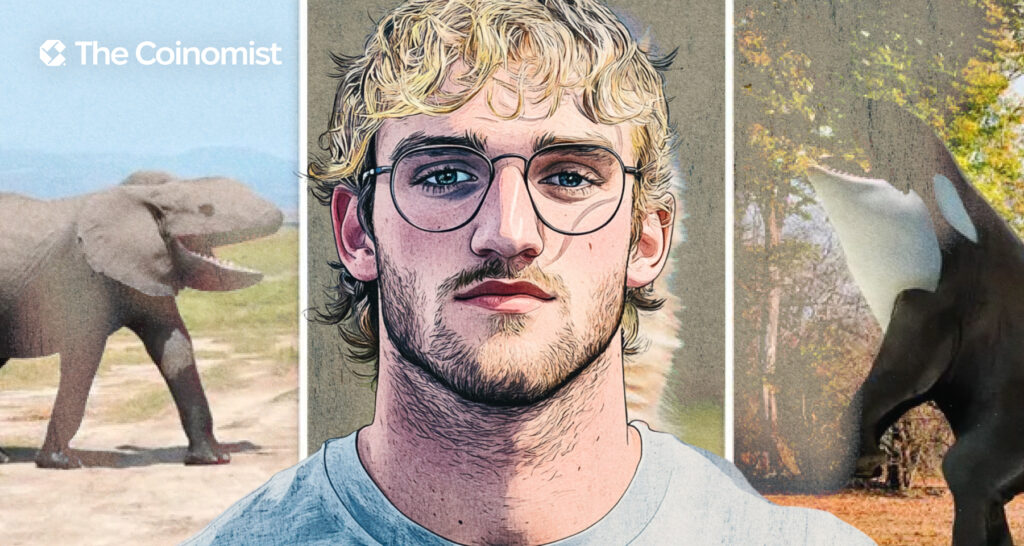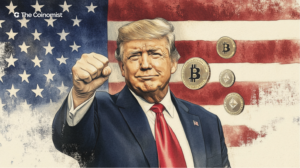Logan Paul’s NFT Gamble: From Millions to Controversy

When YouTuber Logan Paul launched his CryptoZoo project, he promoted it as a groundbreaking NFT game where users could breed exotic digital animals and earn real money. It was meant to be a unique mix of blockchain technology, gaming, and passive income.
On this page
- The Rise of CryptoZoo: A Million-Dollar Project That Promised to Change the Game
- A Bold Vision
- Early Red Flags
- The Mysterious Team and Internal Conflicts
- Investor Backlash and Legal Battles
- Class Action Lawsuit
- $2.3 Million Buyback That Didn’t Solve the Problem
- 99 Originals Catastrophe: History Repeats Itself
- Market Manipulation and the Power of Influencers
- Clash with Coffeezilla and Defamation Lawsuit
- Global Implications: How Logan Paul’s Case Impacts the NFT Market
- Lack of Regulation Puts Investors at Risk
- The Power and Risk of Influencers
- How to Restore Trust in the NFT Industry?
- Lessons in Speculation and Accountability
By 2023, however, the project unraveled amid accusations of fraud and technical failures, leading to financial disaster. Investors lost millions, lawsuits followed, and Paul’s reputation suffered significant damage.
How did one of YouTube’s biggest stars go from crypto pioneer to the face of an NFT scandal?
This is a tale of hype, ambition, and the dangers of unchecked celebrity influence in digital finance.

The Rise of CryptoZoo: A Million-Dollar Project That Promised to Change the Game
A Bold Vision
Launched in August 2021, CryptoZoo was introduced as a Play-to-Earn blockchain game. Users could purchase Base Egg NFTs that hatched into digital animals, which could then be bred to create unique hybrid creatures. The in-game currency, ZOO, was designed to be converted into real money.
Logan Paul promoted the project as a way for players to earn passive income.
To build excitement, he tapped into his massive following. YouTube videos, podcasts, and social media posts generated intense hype, attracting thousands of investors. At a time when NFT collections like Bored Ape Yacht Club and CryptoPunks were making headlines, CryptoZoo looked like it was set to be the next big trend.
Early Red Flags
Despite the hype, serious technical issues quickly emerged. The promised features—hatching eggs, breeding animals, and earning rewards in ZOO—were never fully delivered. Many users were left with worthless NFTs that couldn’t be sold or used.
Soon, the project’s Discord server became a battlefield, with frustrated investors demanding answers.
As disappointment grew, one question became impossible to ignore: Who was really behind CryptoZoo?

The Mysterious Team and Internal Conflicts
At the start, Logan Paul presented Eduardo Ibanez and Jake Greenbaum as the lead developers of CryptoZoo. However, when the project collapsed, Paul accused them of sabotage and fraud. In 2024, he filed a lawsuit against his former partners, alleging they were involved in illegal trading schemes.
However, shifting the blame didn’t solve anything for the investors. The fall of CryptoZoo wasn’t just about technical issues—it was about broken trust and accountability.Paul’s public denials only fueled more doubt:
Did he fall victim to his team’s actions, or was he the mastermind all along?

Investor Backlash and Legal Battles
Class Action Lawsuit
By February 2023, frustrated investors turned to the courts. A class action lawsuit was filed against Logan Paul and his team, accusing them of fraud and financial misconduct.
Although millions of dollars were invested, the promised game never materialized. The plaintiffs alleged that Paul misled his audience, artificially inflating ZOO token prices before cashing out just before the collapse.
$2.3 Million Buyback That Didn’t Solve the Problem
In 2024, in an effort to restore his reputation, Logan Paul launched a $2.3 million buyback program, allowing holders of Base Egg and Base Animal NFTs to exchange them at a rate of 0.1 ETH per NFT.
However, there were significant limitations:
- ZOO token holders and hybrid NFT owners were excluded from the buyback.
- Participants had to waive all legal claims against Logan Paul.
The move faced widespread criticism, with many accusing Paul of using the buyback as a legal loophole disguised as generosity. While Paul argued that the compensation was fair, most saw it as an attempt to avoid more lawsuits.
99 Originals Catastrophe: History Repeats Itself
As CryptoZoo collapsed, Logan Paul continued to pour money into NFTs. He spent $2.7 million on 139 NFTs, including high-profile collections like Bored Ape Yacht Club and CryptoPunks.
One of his most infamous purchases was an NFT from the 0N1 Force collection for $623,000, which later dropped to just $10 in value.
Paul’s huge losses became a glaring example of how celebrity hype often collides with the harsh realities of the NFT market.
Market Manipulation and the Power of Influencers
CryptoZoo wasn’t Logan Paul’s first controversial crypto venture. Before that, he promoted the meme coin Dink Doink, which also crashed, leaving investors with significant losses.
This incident drew the attention of regulators, leading to increased scrutiny of celebrity-endorsed crypto promotions. Many experts argue that influencers lack financial knowledge and face no accountability for endorsing high-risk investments.
Clash with Coffeezilla and Defamation Lawsuit
YouTube investigator Stephen “Coffeezilla” Findeisen conducted an in-depth investigation into CryptoZoo, labeling it a rug pull (when scammers drain all the liquidity from a project). He accused Logan Paul of profiting from token sales without ever delivering the promised game.
In July 2024, Logan Paul filed a defamation lawsuit in response. However, critics saw it as an attempt to silence the investigator and avoid taking responsibility.
The scandal further damaged Paul’s reputation and underscored the need for greater transparency in influencer-promoted crypto projects.

Global Implications: How Logan Paul’s Case Impacts the NFT Market
Lack of Regulation Puts Investors at Risk
The collapse of CryptoZoo highlighted significant regulatory gaps in the NFT market. Unlike traditional financial assets, NFTs operate with minimal oversight, making them a target for fraud.
The SEC has not yet established clear guidelines for NFT classification, leaving investors exposed to potential risks.
The Power and Risk of Influencers
Celebrity influence can make or break digital markets. Logan Paul’s promotions generated massive hype for CryptoZoo, but unfulfilled promises led to its downfall.
Without strict disclosure regulations, influencers will continue to shape volatile short-term trends in the crypto industry—often without facing any legal accountability.
How to Restore Trust in the NFT Industry?
Experts recommend three key reforms:
✔ Transparency
Influencers should disclose their financial interests in any NFT projects they promote.
✔ Smart Contract Audits
NFT functionality and utility should be verified through independent audits before public sales begin.
✔ Regulatory Oversight
Clear classification and regulation of NFTs are needed to ensure investor protection.

Lessons in Speculation and Accountability
Logan Paul’s NFT saga serves as a powerful example of what happens when celebrity hype collides with unregulated markets.
CryptoZoo wasn’t just a failed project—it became a cautionary tale on how NOT to launch an NFT business.
Will this scandal bring about meaningful reforms in the crypto industry? Or will other influencers follow Paul’s footsteps, profiting off crypto investors without facing accountability?
Time will tell, but the era of blind faith in celebrity-endorsed NFT projects may be coming to an end.
The content on The Coinomist is for informational purposes only and should not be interpreted as financial advice. While we strive to provide accurate and up-to-date information, we do not guarantee the accuracy, completeness, or reliability of any content. Neither we accept liability for any errors or omissions in the information provided or for any financial losses incurred as a result of relying on this information. Actions based on this content are at your own risk. Always do your own research and consult a professional. See our Terms, Privacy Policy, and Disclaimers for more details.























